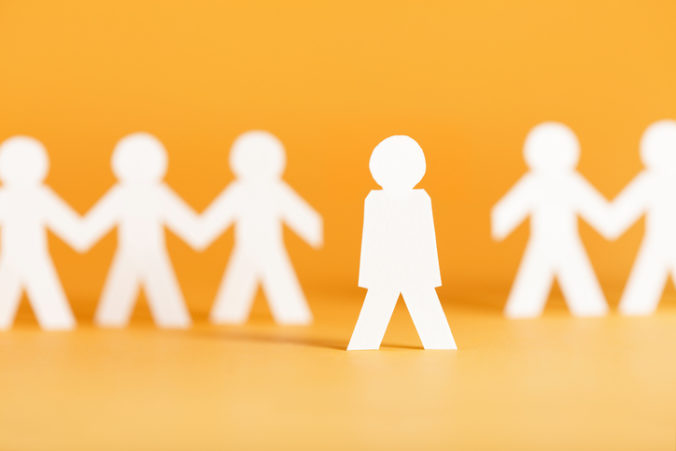By Renate Lindeman
Today my 12 year old daughter with Down syndrome delivered a speech on inclusion in her school.
“Segregation makes a child feel lonely and not liked.
It also teaches other students that it is okay to segregate children who are different.
Students with special needs who are included are happier and more confident about themselves.
Nobody wants to be left out.”
It seems obvious: bad examples teach young people to discriminate and segregate people with differences. We all fear rejection and yearn to be accepted for who we are.
So why do we fail to see how the government teaches society that it’s okay to reject children with disabilities through bad examples? Governments invest millions in selection programs that result in the ultimate act of segregation: to deny participation in life based on disabilities such as Down syndrome.
Media and law-makers pretend that the routine offer of eugenic abortion does not affect those living with disabilities. That’s an illusion. All eugenics defines some people as biologically unacceptable. That is why moms tell us they are asked “Didn’t you know?” or “Why didn’t you choose to abort ….”
Some parents are reminded how much their child with Down syndrome costs society or that they have a moral or social duty to abort.
As a disability advocate and a mother I am involved with Blackbook Downs. We collected these stories and others, that tell of pressure towards abortion. In 2016 we offered the Blackbook to the Dutch government. (I am from the Netherlands)
With Blackbook we show that prenatal selection programs reinforce the social inequality and stigma surrounding Down syndrome. This doesn’t magically disappear after birth but takes root in every aspect of society. Women who decline screening or abortion face a lifetime of stigma. And so do their children. Anxiety about social disapproval likely is the greatest influence on ‘free choice’.
However, society desperately wants to believe that the small minority of children who escaped prenatal selection are treated as equal, valued human beings. That’s why scrolling through my news feed nowadays, feels like riding a roller coaster. An uplifting story about the first Gerber baby with Down syndrome is followed by headlines such as “A Down-free society” and “The ethical duty to abort”.
A story of a woman with Down syndrome who, after being told by employers she ‘doesn’t fit in’, starts her own cookie business and creates jobs for others with disabilities, is followed by a study “where NIPT indicated a high risk of Down syndrome ………. there were no live births in studies from China, Hong Kong, Taiwan, France and Spain.” (NIPT stands for Non-Invasive Prenatal Testing)
Reality hits me: We’re not on a slippery slope, we’ve reached rock bottom. An entire population who it is -scientifically proven- are quite happy being themselves, is classified, dehumanized, discriminated against and eliminated, all dressed up as ‘health-care’. When Downpride (which I head) pointed out that offering eugenic abortion does not lead to treatment or health benefits -and therefore doesn’t fit the purpose of public health- we were told it’s an ‘individual choice’.
This is in sharp contrast with the government’s ban on the ‘individual choice’ to select girls, or boys in the Netherlands. Because choosing the sex of your child is (rightly) gender-discrimination.
I teach my daughter that differences are beautiful. I am confident that -despite the apparent normalisation of eugenics- she believes this message. Not because I tell her, but because she sees only the beauty in other people.
Unfortunately, I can see the ugly side: every intensification in screening during the past decades has led to increased eugenic abortion. In fact, it has been made into a symbol of ‘freedom’ and ‘women’s rights’.
No smiling Gerber baby, how cute and adorable he is (and he is!), can distract from the reality that people like him and my daughter, are intentionally eliminated. So, I am using my woman’s rights to stand up for their equal human rights.
Renate Lindeman is head of Downpride.
















